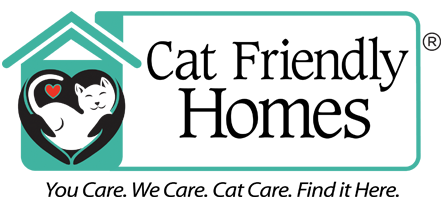With a keen sense of curiosity and dedication to cleanliness, your cat can get into trouble if he makes contact with a toxic substance. In 2021, the ASPCA’s Animal Poison Control Center (APCC) helped more than 401,500 animals exposed to poisonous substances.
Common Feline Toxins
Human or Veterinary Drugs
One tablet of a non-steroidal anti-inflammatory drug (NSAIDs) can be fatal to your cat. Cats also seem to like the taste of certain antidepressants, which may contain an alluring smell or flavor in the coating. Please keep all medications and prescriptions in a secure location. With any accidental medication ingestion, seeking immediate veterinary care is crucial.
Permethrin Poisoning
The topical application of flea control products for dogs contains permethrin which is poisonous to cats. A major portion of feline toxicities reported to the ASPCA Animal Poison Control Center are from permethrins. These incidents occur by either deliberate application of the product to a cat by a caregiver unaware of the dangers, or by the indirect exposure if a cat comes into physical contact with a dog who has just had a flea control product applied. For more information, visit our Permethrin Poisoning page.
Poisonous Plants
Did you know that many kinds of flowers are toxic to cats? Lilies, for example, can be most deadly to cats, as ingestion can cause severe, acute kidney failure. Eating just two or three petals – even the pollen and the water in the vase – can result in potentially irreversible kidney failure. Seeking immediate veterinary care is critical. Keep in mind that there are other plants that are toxic to your cat. Check out this comprehensive list of toxic and non-toxic plants as provided by the ASPCA.
Insecticides, Chemicals, and Pesticides
Exposure to dangerous insecticides can happen when your cat walks through an area recently treated with lawn and garden products, sprays, powders, or granules, especially during the warmer months. Other instances of accidental exposure to dangerous chemicals may occur if a canine topical flea and tick medication is applied onto your cat or if your cat snuggles up close to a dog that has been recently treated. These medications are highly toxic to cats and can cause severe drooling, tremors, and life-threatening seizures in cats. Always ask your veterinarian about the appropriate use of topical flea medication for your cat.
Household Cleaners
Some common household cleaners that can be harmful to your cat are toilet bowl cleaners, laundry detergents, drain cleaners, and carpet cleaners. Be sure to keep these products out of your cat’s reach and wipe away any excess from the outside of the container. Call a veterinarian immediately if you believe your cat has been exposed.
Other Poisons
While these are less obvious, other poisons such as glow sticks, jewelry, liquid potpourri, and antifreeze can be toxic to your cat.
- Glow sticks and jewelry contain a bitter-tasting liquid that can cause your cat to drool profusely.
- Cats are often exposed to potpourri oils by rubbing against leaky bottles or pots containing the oil, or from spilling the oil-containing pots over themselves. Only a couple of licks or a small amount on the skin can be harmful, especially since cats are prolific self-groomers.
- Antifreeze poisoning usually occurs when pets lick antifreeze drops or spills off the ground. For a cat, as little as a teaspoon can prove fatal.
In any of these cases, a trip to the veterinarian may be necessary.

